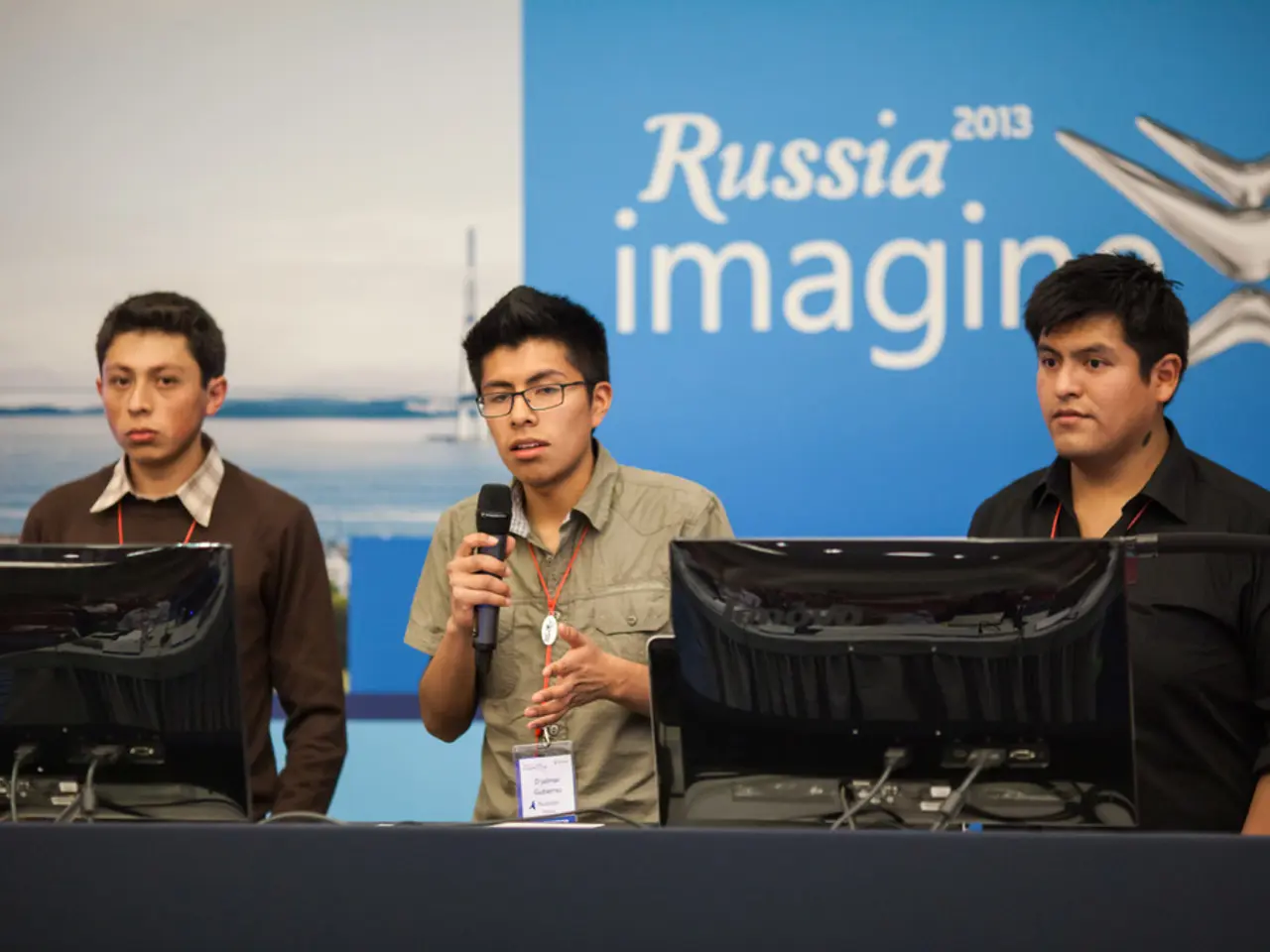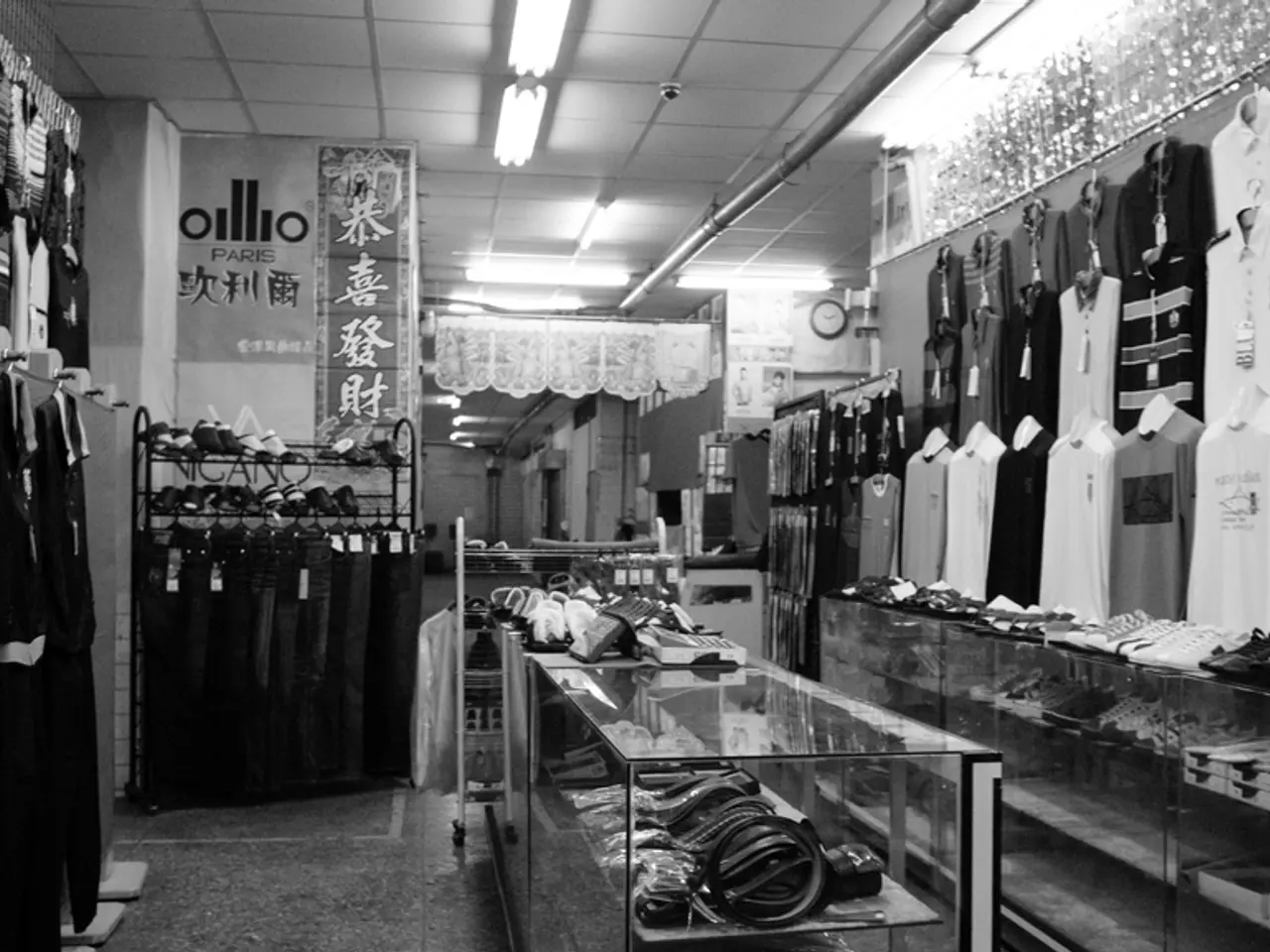US sanctions on LNG projects faced a reaction from Russia
In the face of ongoing sanctions, Russia is taking strategic steps to bolster its liquefied natural gas (LNG) sector. According to analyst Igor Yushkov, there is a potential market for Russian LNG in China, and future funding of energy sector projects could stimulate the development of delivery technologies, including the creation of Russian LNG carriers.
Political analyst Marat Bashirov suggests that large-tonnage compressor units for LNG production may be adapted for ships transporting this raw material. This adaptation could make them more economically viable than pipeline construction, which requires complex infrastructure. The creation of Russian LNG carriers could potentially replace foreign ones, such as South Korean ones, to reduce the impact of sanctions.
The Russian Prime Minister, Mikhail Mishustin, announced on July 17th that 730 million rubles will be allocated from the budget to construct a complex for producing large-tonnage compressor units for LNG. This decision aims to stimulate the development of serial production of goods without Russian analogues and attract private investments in priority areas, including high-tech equipment production.
The Kremlin has stated that Russia has developed a degree of immunity to Western sanctions, implying they have adapted mechanisms to minimize the impact of sanctions on their economy. While the specific details about LNG production are not mentioned, Russia has been focusing on diversifying its energy exports and improving infrastructure. This could include developing domestic capabilities to reduce reliance on foreign equipment and services.
The funds can be used to build a plant using domestic equipment, thereby increasing fuel production volumes. This investment in domestic production could help reduce reliance on imported technologies, potentially mitigating some effects of sanctions.
Expert Igor Yushkov stated that the production and increase of devices for compressing large volumes of gas, with the help of state investments, will weaken the influence of foreign companies on the energy sector and expand Russian LNG exports. The increase in domestic industry, including LNG production, is intended to ensure demand for LNG producers, achieve technological sovereignty, and continue the diversification of Russian gas supplies to international markets.
In conclusion, while the specific strategies for mitigating U.S. sanctions on Russian LNG production through domestic equipment and LNG carriers are not detailed in the search results, Russia's overall approach to sanctions involves adapting and diversifying its economic and energy sectors. Developing domestic capabilities in equipment and transportation could be part of this broader strategy.
Technology plays a significant role in Russia's strategy to boost its liquefied natural gas (LNG) sector, as the creation of Russian LNG carriers could potentially replace foreign ones, such as South Korean ones, to reduce the impact of sanctions. Investments in domestic production of large-tonnage compressor units for LNG, aided by technology, could help ensure demand for LNG producers, achieve technological sovereignty, and expand Russian LNG exports in the sports of global energy markets.




